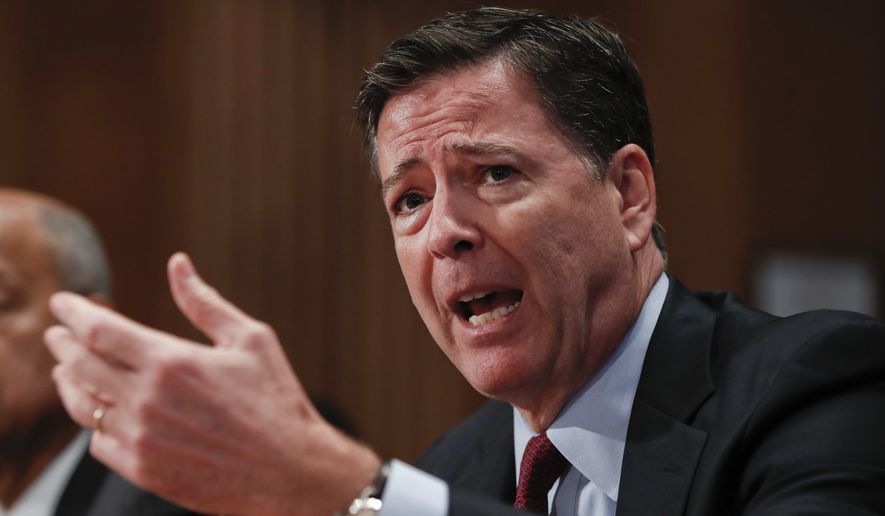FBI Director James B. Comey, in his first public comments since the presidential election, said the bureau requested but was denied direct access to the Democratic National Committee’s email servers and other hacked devices as part of its probe of Russian hacking.
Providing details Tuesday to the Senate intelligence committee about the bureau’s investigation into Russian hacks targeting the election, Mr. Comey said the FBI made “multiple requests” for access, but ultimately a private company was the one to conduct the forensic review and then shared details about what it found with investigators.
“It’s not the way we would prefer to do the investigation,” Mr. Comey said.
He said he did not know for sure why the DNC did not provide the FBI direct access to the email servers.
Tuesday’s hearing follows appearances by the intelligence community’s top officials last week before the Senate Armed Services Committee to discuss the investigation of the Russian cyberhacks into the DNC and the personal email of former Hillary Clinton campaign manager John Podesta.
An intelligence community report released Friday declared that Russian President Vladimir Putin ordered a hidden hacking campaign to influence America’s presidential election in favor of Donald Trump over Mrs. Clinton, the former secretary of state.
Mr. Comey on Tuesday clarified the degree to which Republicans also were targeted for cyberattacks as part of the campaign, saying some state-level Republican organizations were targeted for hacking and that emails from old domains of the Republican National Committee were hacked.
He said information from old RNC domains was taken but none of it released publicly, and that neither the current RNC domain or Mr. Trump’s campaign were successfully hacked.
Mr. Comey said “spear phishing” techniques, whereby hackers attempt to get users to reveal their passwords through falsified emails, were used against both the RNC and DNC.
Mr. Comey said it was clear hackers also targeted local voter registration databases, though he said the intent of those hacks remains unclear.
“There is no doubt the Russians attacked, intruded and took data from some of those systems,” he said.
Election vote tallies were not hacked or altered, he added.
The anti-secrecy website WikiLeaks published the leaked emails during the final leg of the presidential campaign, and the group’s founder, Julian Assange, has said Russia was not the source of the hacked communications.
During Tuesday’s hearing, Sen. Ron Wyden, Oregon Democrat, asked Mr. Comey whether the FBI has investigated relationships between close associates of Mr. Trump and the Russian government.
Mr. Comey said he could neither confirm nor deny any active investigation, and demurred.
Director of National Intelligence James R. Clapper later was asked whether the report on the Russian hacking efforts was part of a politicized investigation.
“Absolutely not. The president asked us to compile all the information we had,” Mr. Clapper said.
Mr. Comey, who has been accused of partisanship in his disclosure of the information about the FBI’s investigation into Mrs. Clinton’s use of a private email server, also weighed in.
“I hope I’ve demonstrated by now that I’m tone-deaf when it comes to politics, and that’s the way it should be,” Mr. Comey said.
• Andrea Noble can be reached at anoble@washingtontimes.com.




Please read our comment policy before commenting.